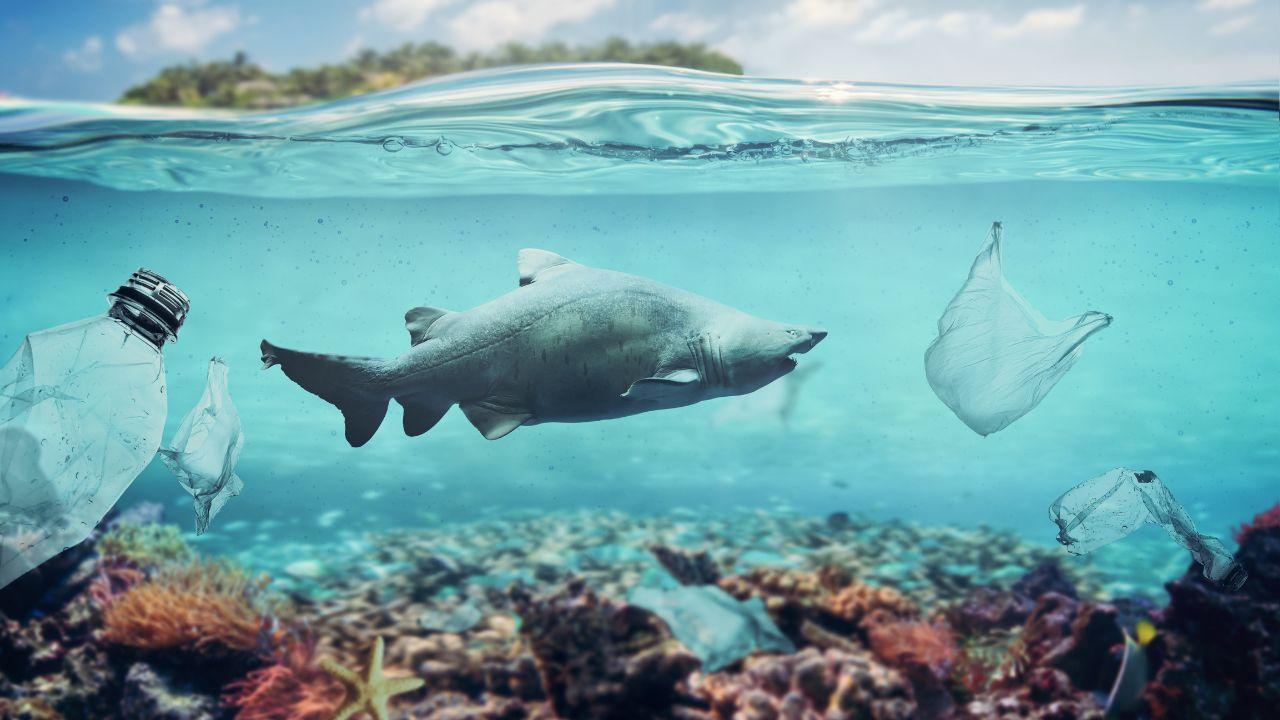
Post by : Mariam Al-Faris
The oceans cover most of the Earth’s surface and are home to countless plants and animals. They provide food, oxygen, and support the climate. Unfortunately, human activities are causing serious problems for oceans and marine life. Pollution, overfishing, climate change, and habitat destruction are harming the delicate balance of marine ecosystems.
Plastic is one of the biggest threats to marine life. Millions of tons of plastic, like bags, bottles, and straws, end up in oceans each year. Fish, turtles, and seabirds often eat plastic by mistake, which can hurt or kill them. Plastic can also enter the food chain, affecting humans who eat seafood. Reducing plastic use, recycling, and participating in beach clean-ups can help protect the oceans.
Overfishing happens when humans catch too many fish, faster than they can naturally reproduce. This reduces fish populations and upsets the balance of marine life. Some species, like tuna and sharks, are now endangered. Choosing sustainably sourced seafood and supporting laws that protect fish can help maintain healthy ocean ecosystems.
Oil spills from ships and drilling cover the water and make it hard for fish and plants to survive. Chemicals from farms and factories, like fertilizers and pesticides, also pollute oceans. These pollutants can poison marine life and damage habitats. Supporting clean energy, reducing chemical waste, and raising awareness about pollution are important steps for ocean protection.
Burning fossil fuels releases greenhouse gases, which warm the planet and oceans. Warmer oceans affect marine life, including coral reefs and fish. Coral bleaching happens when water is too hot, causing coral to die. Fish may migrate to cooler waters, disturbing the food chain. Saving energy, using renewable power, and reducing carbon emissions can help slow ocean warming.
Oceans absorb carbon dioxide from the air. Too much CO2 makes the water acidic, which is harmful to marine animals like shellfish, corals, and plankton. Acidic water makes it hard for these animals to survive, which affects the entire food chain. Planting trees, reducing CO2 emissions, and supporting eco-friendly policies can help reduce acidification.
Human activities such as coastal development, dredging, and pollution destroy habitats like coral reefs, mangroves, and seagrass beds. These habitats are homes for many marine species. When habitats are lost, fish, birds, and other animals struggle to survive. Protecting these areas and supporting conservation programs is vital for healthy oceans.
Ships, submarines, and industrial activities create underwater noise. Marine animals like whales and dolphins rely on sound to communicate and navigate. Loud noises can confuse them, cause stress, and even lead to strandings. Supporting quieter shipping practices and raising awareness about underwater noise can help protect marine animals.
Humans sometimes introduce species into oceans that do not naturally belong there. These invasive species can harm local marine life by competing for food and space. Avoiding the release of aquarium pets and supporting removal programs are ways to prevent damage from invasive species.
Problems in oceans also affect humans. Many people rely on fish for food. Pollution, overfishing, and habitat loss reduce fish stocks, which can lead to food shortages and higher prices. Coastal communities may lose jobs and income. Protecting oceans ensures food security, jobs, and a healthy economy for future generations.
Everyone can contribute to protecting oceans. Simple daily actions can make a big difference. Reduce single-use plastics, recycle, eat sustainable seafood, save energy, participate in clean-ups, and spread awareness about ocean conservation. Small steps taken by many people can protect marine life and preserve the oceans for the future.
Oceans are vital for life on Earth, providing food, oxygen, and habitats for countless species. Human activities are threatening oceans through plastic pollution, overfishing, climate change, oil spills, and habitat destruction. By taking simple steps in daily life, we can protect oceans, save marine life, and ensure a healthy planet for generations to come.










Iran Strikes UAE 167 Missiles 541 Drones Hit Dubai
Iran launches large-scale missile and drone assault on UAE forcing airport shutdowns and triggering

UAE Rejects Sudan Conflict Allegations at UN Human Rights Council
Emirati diplomat issues Right of Reply in Geneva dismissing accusations and urging accountability fo

NCM issues fog and low visibility warning in UAE
National Centre of Meteorology warns of fog and reduced visibility in coastal and internal areas, ur

UAE expresses full solidarity with Kuwait over maritime rights
UAE expresses full solidarity with Kuwait and urges Iraq to resolve maritime concerns through intern

Dubai Parks to Offer Free Medical Tests During Ramadan
Free health screening buses will provide eye, blood pressure and glucose tests across major Dubai pa

T20 World Cup India Prepare to Crack Spin Test in Super Eight
Bowling coach Morne Morkel confident Indian batters will regain rhythm against spinners as Super Eig